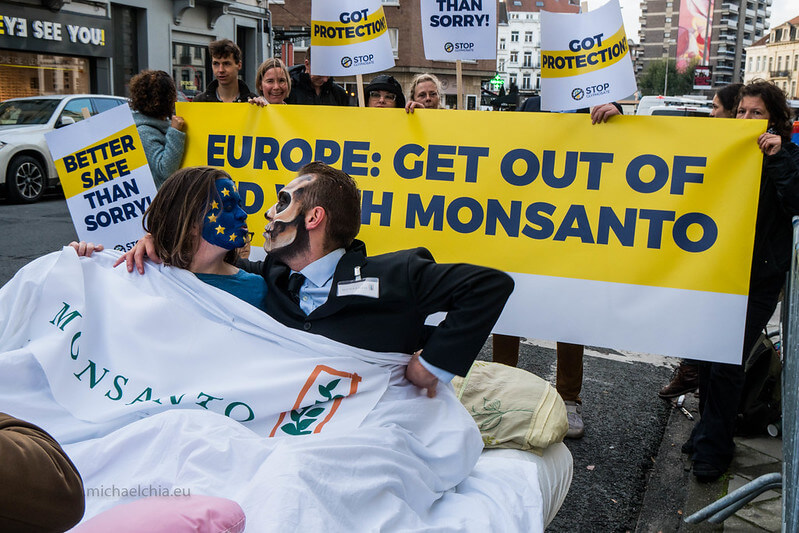Scientific misconducts & giving priority to industry-based studies
The first use of glyphosate comes back many years, but only recently have the issues related to exposure to this pesticide been seriously considered. Various authorities have intervened on this subject, providing their considerations, sometimes conflicting. In 2015, the Agency for Research on Cancer (IARC) classified glyphosate as a probable human carcinogen (group 2A), but the European Food Safety Agency (EFSA) argues that the substance is unlikely to be genotoxic or pose a cancer threat to humans.
Inspired by the glyphosate example, a group of scientists and experts published a “White Paper” in 2018 highlighting the problems with the current pesticide authorisation procedure and proposing potential solutions. The paper, which was also published in the European Journal of Risk Regulation in 2020, highlights scientific misconduct and administrative shortcomings within the EU system, leading to the approval of pesticide substances that pose potential risks to human health that should otherwise be banned. Moreover, the flaws in the assessment were also highlighted by the work of two experts, Christopher J. Portier and Peter Clausing, who evaluated the authorities‘ draft assessment report and ECHA’s opinion which ignores its own rules and guidance to reach its conclusions. Following applicable standards and guidelines properly, Portier and Clausing concluded unequivocally that there is in fact sufficient evidence of carcinogenicity, for glyphosate to be classified as a category 1B carcinogen.
Despite the science highlighting the dangers of glyphosate, it still has not been banned from the European market. In fact, with the latest regulation 2022/2364, published in the Official Journal of the EU No. 312, the European Commission has decided to extend the authorization for another year of use of glyphosate until December 15, 2023.
Resources
Factsheets:
CEO/PAN EU/Global2000 (2O2O) : GEFÄHRLICHES VERTRAUEN IN DIE „GUTE LABORPRAXIS“, DANGEROUS TRUST IN "GOOD LABORATORY PRACTICE
Articles:
Générations futures (2022) : Glyphosate : 41 ONG demandent à la Commission européenne de mettre fin à l’utilisation d’études industrielles non fiables.
Générations futures (2021) : report : Glyphosate Evaluation: A Severely Skewed Report!
Génération futures (2017) : Rapport sur l’évaluation scandaleuse du glyphosate
PAN Europe (2017) : Report, ANALYSIS OF EUROPEAN GLYPHOSATE RISK ASSESSMENT AND THE IRRATIONAL DISMISSAL OF STUDIES THAT REPORT TOXIC EFFECTS
Euractiv (2017) : article on Global 2000 “buying science” report
PAN Europe (2017): press release on Global 2000 “buying science” report
Global 2000 (GER) (2021): EU-BEHÖRDEN NUTZTEN FEHLERHAFTE INDUSTRIE-STUDIEN, UM GLYPHOSAT ZUZULASSEN - UND SIE TUN ES JETZT WIEDER, EU AUTHORITIES USED FLAWED INDUSTRY STUDIES TO APPROVE GLYPHOSATE - AND NOW THEY ARE DOING IT AGAIN
The Guardian (2020) : Science shouldn't be for sale – we need reform to industry-funded studies to keep people safe
The Guardian (2023): Pesticide firms withheld brain toxicity studies from EU regulators, study finds
Le Monde (2021): l’expertise européenne a exclu de son analyse l’essentiel de la littérature scientifique
Le Monde (2022) : des experts indépendants mettent en doute l’intégrité des travaux d’homologation
Scientific research papers
“The Need For Independent Research On The Health Effects Of Glyphosate-Based Herbicides” (Environmental Health, 2018) by Philip J Landrigan et al.

